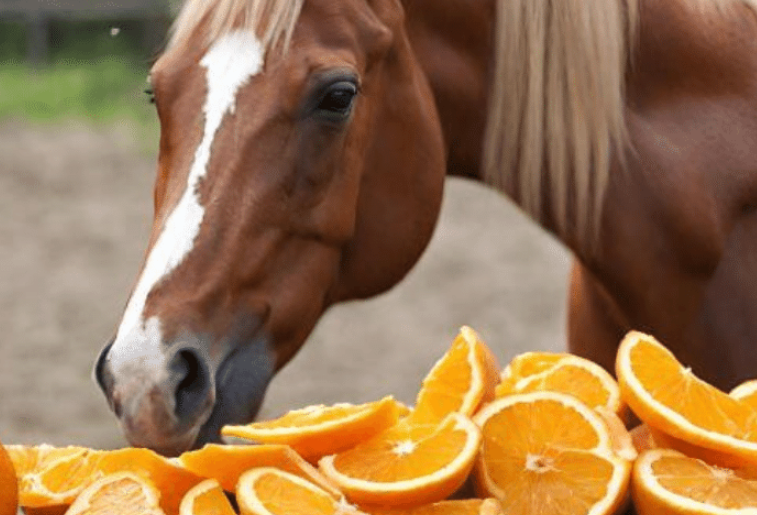Most horse owners are careful about what they feed their equine companions, ensuring that every ingredient is safe and nutritious. Concerns arise when considering unconventional treats, such as orange peels. Can horses safely consume orange peels, or do they pose a risk to their health? Let’s probe into the topic to determine whether feeding orange peels to horses is a safe practice.
Understanding Equine Nutrition
Essential Nutrients for Horses
To ensure optimal health and performance, horses require a well-balanced diet that provides imperative nutrients such as carbohydrates, proteins, fats, vitamins, and minerals. Carbohydrates are the primary energy source for horses, while proteins are imperative for muscle development and repair.
Fats are important for energy storage and hormone production, while vitamins and minerals play crucial roles in various physiological functions in the body. It is imperative to provide a diet that meets the individual needs of each horse based on factors such as age, activity level, and health status.
Common Foods and Treats for Horses
When considering feeding your horse, hay and grass should make up the majority of their diet, as they are natural forage sources that provide imperative nutrients and promote digestive health. In addition to forage, grains such as oats, barley, and corn can be fed to provide supplemental energy.
Fruits and vegetables like apples, carrots, and beet pulp can also be given as treats in moderation. It is important to avoid feeding horses foods that are toxic to them, such as chocolate, avocado, and onions, as these can be harmful to their health.
Plus, it is imperative to consult with a veterinarian or equine nutritionist to create a balanced diet plan tailored to your horse’s specific needs and requirements. They can provide guidance on the best feeding practices and recommend appropriate supplements if necessary to ensure your horse receives all the nutrients they need for optimal health and well-being.
Orange Peels as a Dietary Supplement
Nutritional Benefits of Orange Peels
You may not have realized that orange peels pack a nutritional punch. They are rich in vitamins such as vitamin C, fiber, and antioxidants. These nutrients can potentially benefit your horse’s immune system and overall health.
Risks and Considerations
The use of orange peels as a dietary supplement for horses is not without its risks. One concern is the potential presence of pesticide residues on the peel, which can be harmful to your horse’s health. Additionally, overfeeding citrus fruits, including peels, can lead to digestive upset and colic in horses.
Plus, it’s important to note that while some horses may enjoy the taste of orange peels, others may reject them. As with any new supplement, it’s best to introduce orange peels gradually into your horse’s diet and monitor their response closely.
Also Read – Feeding Oranges to Horses – Citrus Delight or Dietary Faux Pas?
Guidelines for Feeding Orange Peels to Horses
After reading about what fruits horses can eat in the informative article “Can Horses Eat Bananas, Pears, Apples, and Other Fruits?“, you may wonder about feeding orange peels to your equine companion.
Preparing Orange Peels for Horses
To ensure the safe consumption of orange peels by horses, always wash the oranges thoroughly to remove any pesticides or chemicals. Once washed, peel the oranges, making sure to remove any seeds as they can be harmful to horses. The peels can then be chopped into smaller, more manageable pieces for your horse to eat.
Recommended Quantities and Frequency
Feeding orange peels should be done in moderation. As with any treat, it is important to consider the sugar content in oranges. Limit the amount of orange peels to a few small pieces per day, and always monitor your horse’s reaction to them. It’s best to incorporate orange peels as an occasional treat rather than a daily snack to prevent any digestive upsets.
Expert Opinions and Research Findings
Studies on Citrus Feeds for Horses
Findings from various studies on citrus feeds for horses suggest that while small amounts of citrus fruits like oranges can be safe for horses, feeding them large quantities, especially the peels, can lead to gastrointestinal issues such as colic. The high acidity and crucial oils in citrus peels can disrupt the horse’s sensitive digestive system, leading to potential health risks.
Veterinarians’ Perspectives on Orange Peels
Expert veterinarians advise caution when considering feeding orange peels to horses. While a minimal amount of orange flesh may provide some nutritional benefits, the peels can pose a higher risk of digestive upset. Veterinarians recommend sticking to traditional equine diets and consulting with a professional before introducing any new food items, including citrus fruits, into the horse’s nutrition plan.
Orange peels, specifically, contain higher levels of crucial oils which can be disruptive to a horse’s digestive tract. Veterinarians emphasize the importance of monitoring horses closely for any signs of discomfort or digestive issues if orange peels are included in their diets, and prompt veterinary attention should be sought if any concerns arise.
Final Words
Hence, when it comes to feeding orange peels to horses, it is best to err on the side of caution. Although orange peels themselves are not toxic to horses and can provide some nutritional benefits, they should be given in moderation due to the potential risks of digestive upset or choking. It is always advisable to consult with a veterinarian or equine nutritionist before making any significant changes to your horse’s diet.
Conclusively, while the occasional small portion of orange peel may be safe for your horse as a treat, it is important to prioritize their overall health and well-being by sticking to a balanced, nutritious diet that is approved by equine experts.
